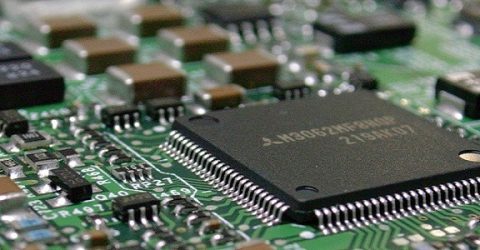How much smart technology do we own?

Fifty years ago, it was considered sophisticated to have a home telephone, rather than needing to visit a nearby phone box to call your mother/bookmaker/local takeaway/secret lover.
Forty years ago, owning a TV set was considered a sign of affluence, with millions of people renting black-and-white sets from Rumbelows and Radio Rentals.
Thirty years ago, a home PC would have seemed high-end, while less than one in seven domestic dwellings had internet connectivity back in 1999.
Even a decade ago, the concept of web-enabled gadgets would have seemed fairly outlandish. Yet a third of UK households now own at least one item of smart technology.
And most consumers believe every home will contain internet-connected gadgets ten years from now.
But if the home of 2029 is connected and smart, does the home of 2019 have much to offer in terms of connected technology?
Smart thinking
A survey conducted last month revealed Millennials are far more likely to have adopted smart tech than older generations.
Of the 31 per cent of UK households with at least one internet-enabled device, these were the most common gadgets:
- A smart TV. Over 44 per cent of people cited TVs, more than any other gadget on the list. That may be partly because TVs are regularly replaced, and tend to offer connectivity as standard
- Smart meter. More than one in three households has a smart energy meter, which are often given away to new customers by utility firms
- A smart speaker. Around 35 per cent of households with smart technology have purchased a virtual assistant like Amazon’s Alexa, often to control electrical appliances
- A smart doorbell. Almost one in five smart tech adopters have installed a doorbell that combines audio-visual communication with proactive home security
- Smart plugs. In 15 per cent of cases, respondents had purchased a plug capable of being operated remotely, eliminating any need for temperamental timer devices.
Another interesting finding from the survey (conducted by blinds company Duette) was our increasing reliance on apps to manage and monitor smart technology.
Six per cent of people admitted to controlling domestic lighting, blinds or heating systems through apps, with simplicity the most commonly cited benefit (41 per cent).
Only a quarter of people claimed to have acquired this technology to own the latest gadgets, rather than to make their lives easier.
And over 70 per cent believe smart homes will be the norm rather than the exception in future, with new homes expected to adopt wireless connectivity as standard by 2030.
Nevertheless, there is a significant percentage of the population still to be convinced about the merits of web-enabled gadgets.
Two thirds of people who don’t own any smart devices cited a lack of trust as the primary reason for abstaining.
Manufacturers may need to improve device security (particularly to reduce the risk of hacking) before we’re all comfortable buying and installing web-enabled technology.






